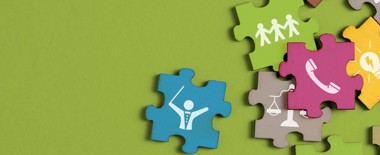Take a look at our articles or search by a particular resource type or area of interest. Can't find what you're looking for? Get in touch.

Designing a team - part 1
Discover the fundamentals of putting a new team together - the first in a series taken from Dr Meredith Belbin's book, Management Teams, Why They Succeed or Fail

Behavioural vs. Psychometric Tests
Companies use psychometric, behavioural and personality tests to help them make decisions, develop employees and build high-performing teams. There are many to choose from, how do you decide?

The Change Curve and Belbin
Discover how to coach people through Elisabeth Kubler-Ross' change curve using Belbin.

Belbin and Lencioni
We take a look at Patrick Lencioni's Five Dysfunctions of a Team and examine how to use Belbin to mitigate a team’s problems and pave the way for success.

Belbin and Tuckman: Supporting your team at every stage
Tuckman studied teams from formation to completion and identified crucial stages in a team’s life cycle. Belbin’s observations of teams uncovered nine Belbin Team Roles. So how do the two fit together

Belbin - an international language
Belbin is used worldwide. Our research analysed differences between Team Role distributions across different countries.

Case Study: How Oppo Brothers improved staff engagement with Belbin
Oppo Brothers have used Belbin to build their team, aid understanding of which Team Roles to bring in and when, and how to manage them. They have also improved staff engagement significantly.

Under pressure: how well do you cope with challenging situations?
Pressure. Some people thrive on it; others buckle. But how can we predict someone’s reaction? And if we have an idea of what this reaction will be, how can we help people to develop?

Hitting the Target Case Study: the Belbin Arrow
This case study introduces an innovative and informative way to illustrate how Team Role balance affects a team’s focus, and ultimately, its performance.

Self-Sabotaging Teams
It takes courage to stand on your own, facing a group who do things differently. But sometimes, in workshops and presentations, our facilitators ask people to do just that.

Belbin Remote and Hybrid Working Survey
In this study we discover how remote and hybrid working has affected not just individual effectiveness and productivity, but also team engagement and connection to organisational culture.

A Belbin Team Role Guide to Running a Half Marathon
A member of the Belbin team took part in the annual local half marathon here in Cambridge and that got us thinking about how different Team Roles might approach running a half marathon.